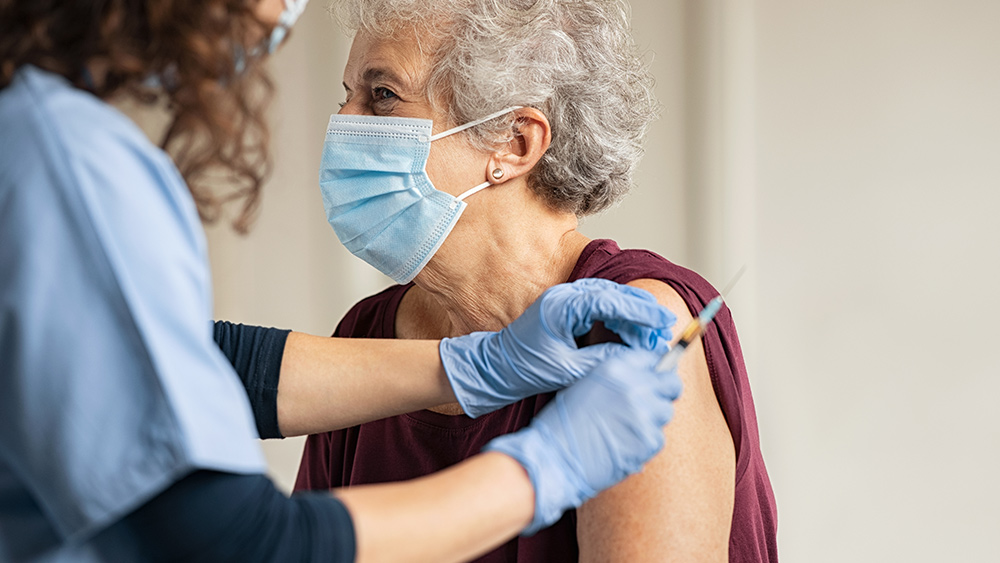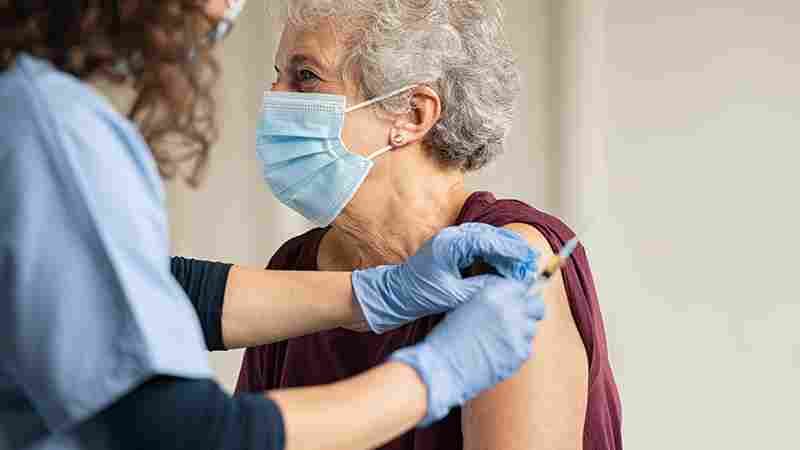
- 2021-01-10
- 0.0 Reitingas
- 1356 Peržiūrų
- Aptarti
(Paranormal) Federal health officials have announced that severe allergic reactions to the Wuhan coronavirus (COVID-19) vaccines are happening at a higher rate than similar reactions to flu vaccines.
(Article by Arsenio Toledo republished from NaturalNews.com)
This announcement was made by health officials from the Centers for Disease Control and Prevention (CDC), who came out with a study, published in the journal Morbidity and Mortality Weekly Report, saying that the allergic reactions, known as anaphylaxis, are happening at a rate of 11.1 per million doses administered. Seventy-one percent of the reactions are occurring within half an hour of vaccination. On the other hand, flu vaccines are only estimated to cause 1.3 cases per million doses.
CDC insists coronavirus vaccines are still safe
Despite the fact that people are multiple times more likely to get an allergic reaction to a coronavirus vaccine than the flu vaccine, CDC officials still want to call the incident very rare.
“The anaphylaxis rate for COVID-19 vaccines may seem high compared to flu vaccines, but I want to reassure you, this is still a rare outcome,” said Dr. Nancy Messonnier during a call with reporters. Messonnier is the director of the CDC’s National Center for Immunization and Respiratory Diseases.
“It’s still a good value proposition,” she added. “Even if the rate is higher than what we see after routine immunizations, anaphylaxis still remains rare.”
Despite the reassurance, Messonnier said that the CDC has been constantly updating its recommendations as allergic reactions and other “adverse events” are reported.
The CDC has further advised people who experience an allergic reaction to the first dose of the COVID-19 vaccine to not get the second dose. Health workers who administer the vaccines have also been directed to observe anyone with a history of anaphylaxis or a history of allergic reactions to vaccines for at least 30 minutes after they are vaccinated.
CDC messaging regarding the matter of vaccinations for people with a history of allergic reactions has also been very confusing. While they stress that the benefits of getting vaccinated far outweigh the risks, they have warned people with a history of allergic reactions to any of the components in the vaccines to not get them.
“Our vaccine safety systems haven’t picked up any worrisome signals,” claims Messonnier. “This means that right now the known and potential benefits of the current COVID-19 vaccines outweigh the known and potential risks of getting the COVID-19.”
“That does not mean, however, that we couldn’t see potential serious health events in the future.”
The CDC and the Food and Drug Administration (FDA) have issued emergency-use authorizations for big pharma companies that have developed coronavirus vaccines, like Moderna and Pfizer. They are reviewing the data regarding serious adverse events and are trying to disprove the fact that there is a connection between them and the vaccines. Messonnier herself believes that the reactions could be “coincidental.”
Messonnier also briefly addressed reports that many healthcare workers are considering not getting vaccinated, saying that it was definitely concerning.
“It makes it exceedingly important that we get the correct information to healthcare workers and we quickly dispense with misinformation. We need them not only to protect themselves, but to educate their patients so everyone understands these vaccines… have a good safety profile, they are working and they … can help us end the pandemic.”
Watch this special episode of Brighteon Conversations with Mike Adams, the Health Ranger, as he and cancer researcher, vaccine skeptic and health freedom advocate Ty Bollinger discuss the falsehoods regarding coronavirus vaccines and rip apart the global conspiracy surrounding them.
Number of severe allergic reactions to coronavirus vaccine rising rapidly
As of press time, the CDC has reported that there have been at least 21 cases of anaphylaxis from the nearly 2 million people who have received the first shot of Pfizer and BioNTech’s COVID-19 vaccine between mid to late December.
“We closely monitor all reports suggestive of serious allergic reactions following vaccination and update labeling language if needed,” said a Pfizer spokesperson to mainstream news outlet CNBC.
Of the 21 cases that the CDC has published, 18 have a documented history of allergies or severe allergic reactions to drugs, medical products, food or insect stings. Seven of these people also have a history of anaphylaxis, including one who had an anaphylactic episode following a rabies vaccine, and another following an influenza A (H1N1) vaccine.
Nineteen of the cases were treated with epinephrine, 17 were treated at a hospital’s emergency care department. Worse still, four were hospitalized, including three who were sent to intensive care.
The CDC notes that an additional 83 vaccine recipients have experienced allergic reactions that were not considered to be severe. These symptoms include rashes, excessive itching and scratchy and irritated throats. These symptoms occur within half an hour after receiving the first dose of the vaccine. Similar to the patients who experience anaphylaxis, these cases also have a history of allergic reactions.
There is no federal database for confirmed severe allergic reactions, and the CDC’s current data is missing reported incidents coming out from Dec. 24 to the present day. As of Wednesday, Jan. 6, nearly 5 million doses of the Pfizer-BioNTech and Moderna vaccines have been administered. This means that, at a minimum, there have been 55 severe allergic reactions to the vaccines.
The CDC also reports that they have received 4,393 reports of side effects or other serious reactions following receiving a shot of the vaccine through the Vaccine Adverse Event Reporting System, a federal government program for vaccine safety co-managed by the FDA and the CDC.
The federal government has ruled out most of these cases, stating that they aren’t serious enough to be considered an allergic reaction or are “unrelated” to the vaccines.
As federal and state governments continue to roll out the coronavirus vaccines over the next few months, it is likely that more people are going to report experiencing reactions to the vaccine.
Learn more about the ongoing rollout of coronavirus vaccines in the United States and in the rest of the world by reading the latest articles at Vaccines.news.
Sources include:
Pasaulio naujienas kitaip... skaitykite Paranormal Telegram, FB ir X(twitter) kanale...kadangi jau perskaitėte šį straipsnį iki pabaigos, prašome Jus prisidėti prie šio darbo. Skaitykite „Paranormal.lt“ ir toliau, skirdami kad ir nedidelę paramos sumą. Paremti galite Paypal arba SMS. Kaip tai padaryti? Iš anksto dėkojame už paramą! Nepamirškite pasidalinti patikusiais tekstais su savo draugais ir pažįstamais.
Turite savo nuomone, tapk autoriumi, prisijunk ir rašykite bloge. Dalinkitės receptais, sveikatos patarimais, nutikimais, susidūrėte su nekasdieniškais reiškiniais. Galite išversti iš užsienio kalbos, talpinkite su nuoroda. Laukiame Jūsų straipsnių, naujienų, apžvalgų ar istorijų!
Susijusios naujienos
Būkite pirmi, kurie pasidalins savo nuomonėmis su kitais.
Skaityti daugiau
Skaityti daugiau
Skaityti daugiau
Skaityti daugiau
Skaityti daugiau

